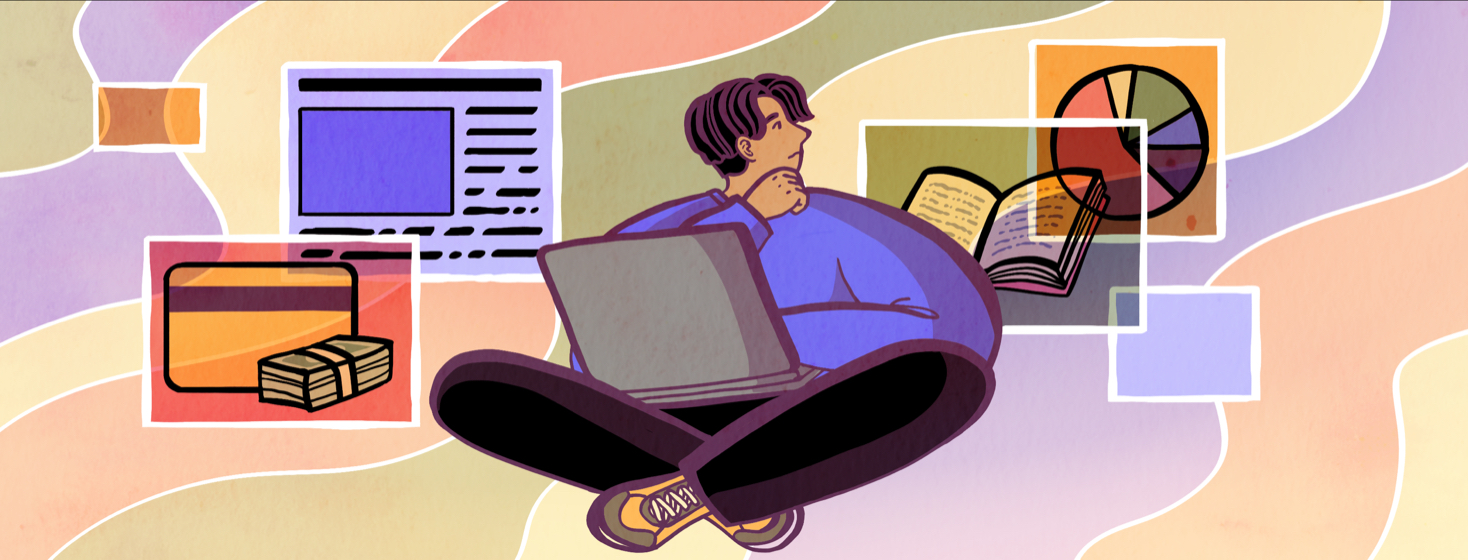I’m Too Sick to Work Full-Time, But Not Sick Enough to Receive Benefits
I’ve spent most of my life living in between the lines; I’m too sick to work a full-time job, but not sick enough to qualify for SSD (Social Security Disability) benefits.
Many of the usual strategies people use to achieve financial stability and build their wealth, like employer matching 401K contributions or health insurance through full-time employment, just aren’t available to people too sick to work full-time. Below are some strategies I use to manage my finances when my real full-time job is managing my health.
Featured Forum
View all responsesI became financially literate
These days, you can find information on nearly any topic with a few keystrokes. For chronically ill people on a limited income, the trick is filtering through these resources to find what is factual and what applies to your situation.
So I listened to established voices in the personal finance sphere. Some mainstream personal finance experts offer advice that’s particularly valuable to those with chronic illnesses. For example, Dave Ramsey’s suggestion to avoid debt really applies to chronically ill people who might lose their income if they become sicker.
I also read books like patient advocate Laurie Edwards’Life Disrupted, a guide to navigating work, relationships, and finances while sick.
When I was first diagnosed, I had to learn a lot of new medical terms. I researched my illness and learned about my medications. I treat personal finance the same way: as information I need to learn in order to survive.
I increased my earning potential while decreasing my cost of living
I started by creating a budget. This was challenging during times when I didn’t have a consistent income. I calculated the minimum that I need to survive, and I stay as close as possible to this number, even if I earn more in a particular month. I do my best to live below my means and avoid high interest debt. I also always keep liquid assets in the event of a medical emergency. I keep my emergency fund in a High Yield Savings Account with an online bank. Unlike a traditional savings account, money in a HYSA accrues interest at a much higher rate.
Maximizing your earning potential isn’t easy when you have limited energy and need to rest more than most people your age. But I’ve found creative ways to make money that don’t require much physical energy. I’ve sold things I no longer want on Facebook Marketplace. And even though I don’t have a writing degree, I write about my illness.
Some people also dog-sit or cat-sit from their home, rent out parking spaces if they have one, or get paid to take surveys online. To keep more money in my pocket and out of the IRS’s, I also deduct medical expenses that are over 7.5 percent of my income.
I make the most of available resources
Learning about the following resources changed my financial life:
An HSA, or health savings account, allows me to set aside pre-tax income to use on health expenses. The money in HSAs can even be invested and grown.
DIAL, or Disabilities Access and Information Line, is a free resource created during the pandemic that helps disabled people connect to resources in their communities and “promote(s) independent living and address(es) fundamental needs, such as food, housing, and transportation.”
In addition, I discovered after doing some research that some disease foundations pay for renovations to make homes more accessible or to cover medications not covered by insurance. They may also deliver meals to bedridden patients and provide rides to doctors’ appointments.
I’ve also learned that financial advisors are not necessarily expensive and not just for the rich. I invest extra income through a fiduciary, a type of advisor that is legally obligated to act in your best interest. Fiduciaries require no upfront costs to hire because they are paid a percentage of your investment earnings.
Living in between the lines isn’t easy. I’ve had to learn how to live in a world that wasn’t built for me. Just as a wheelchair or cane helps us navigate the world around us, these resources have helped me navigate my finances.

Join the conversation